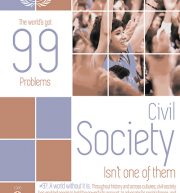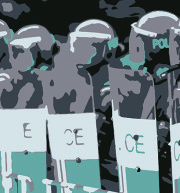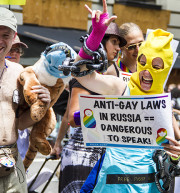These reports focus on a particular thematic issue surrounding the mandate – such as freedom of assembly and association in the context of elections – and contain substantive research on that issue, along with recommendations. They are issued in all six official UN languages.

Has civil society made the world a better place? Where and when has civil society made concrete and identifiable achievements? What would the world look like without civil society? These are the central questions that the UN Special Rapporteur on the rights to freedom of peaceful assembly and of association, Maina Kiai, addresses in this, his final thematic report to the United Nations Human Rights Council. Throughout history and across cultures, associational life has enabled people to hold the powerful to account, to advocate for – and… Continue reading →

In recent years, there has been a perceived rise in the expression of fundamentalism in many contexts across the world. Despite the frequent use of the term, “fundamentalism” remains a word that is rarely defined with any specificity. Common use generally centers on religious fundamentalism, and this is perhaps what comes to mind first for most people. But fundamentalism can encompass much more than religion, and in this report the Special Rapporteur takes a much broader view of the term. He believes that fundamentalism can and should be defined… Continue reading →

The ability to assemble and act collectively is vital to democratic, economic, social and personal development, to the expression of ideas and to fostering engaged citizenry. Assemblies can make a positive contribution to the development of democratic systems and, alongside elections, play a fundamental role in public participation, holding governments accountable and expressing the will of the people as part of the democratic processes. Yet despite the increasingly prominent role that assemblies play in today’s world, there remains a lack of clear… Continue reading →

The global economy relies heavily on the availability and exploitation of natural resources. With that demand has come a plethora of concerns relating to the sustainability of economic growth and its impact on the climate, the environment and, more generally, on human rights. Despite the high stakes, citizen engagement in the natural resources sector is notoriously difficult. Secrecy cloaks decision-making processes and outcomes; there is a lack of mechanisms through which interested parties may express their concerns; discussions are often highly… Continue reading →

Backlash from the Arab Spring of early 2011 continues to be felt globally, with space for civil society actors increasingly shrinking. In recent years many States have responded to people’s assertions of peaceful dissent by violently clamping down on peaceful protests and other forms of assembly, unduly restricting the ability of associations to form and operate, and physically assaulting civil society actors. While those actions have negatively affected all who exercise their rights to peacefully assemble and freely associate, certain groups are… Continue reading →